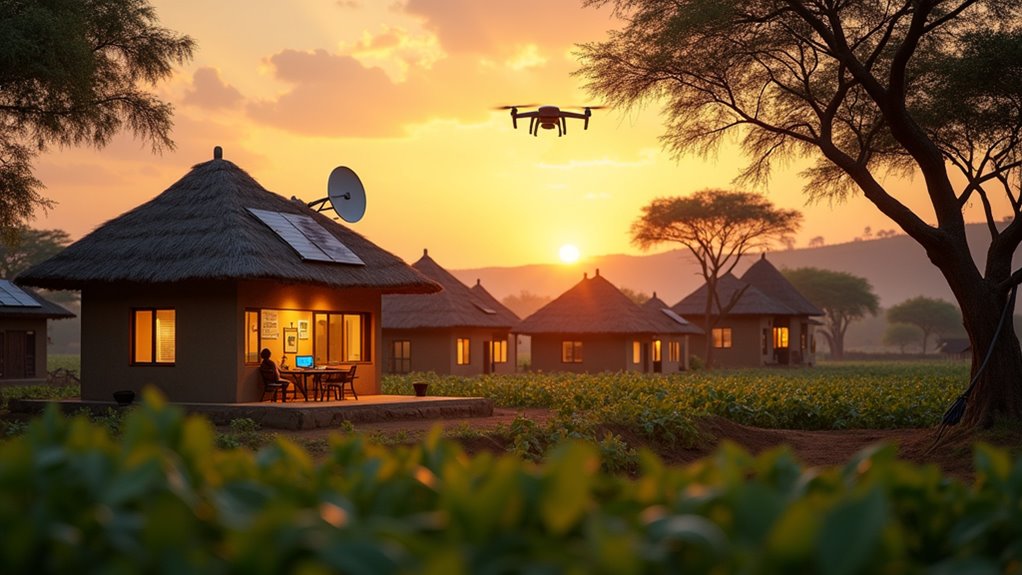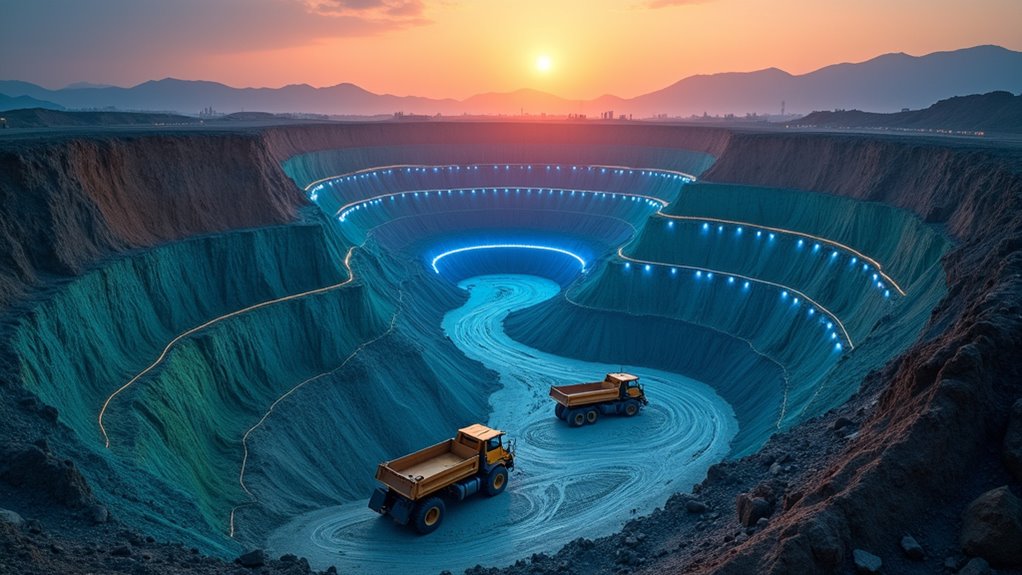Some developing countries see AI as their ticket out of the economic nosebleed seats, hoping it can level the playing field—finally. Imagine Kenyan farmers using smart sensors, or rural Indian clinics rolling out AI-powered diagnostics. If governments invest wisely (and avoid the tech bro hype), these nations might just leapfrog some old-school obstacles. Sure, it’s a digital moonshot, but with the right open-source tools and a bit of luck, they just might shake up the status quo—curious what’s really at stake?
Even as science fiction fans celebrate the dawn of artificial intelligence—cue the dramatic movie trailer voice—AI’s real-world impact is a little messier than Hollywood suggests. Sure, there are robots and algorithms promising to solve humanity’s problems, but the global playing field? It’s about as level as a see-saw in a sandstorm.
Let’s start with *who* actually holds the keys to the AI kingdom. Advanced economies like the US, China, and Japan aren’t just leading the AI parade—they practically built the float. Their data centers, patents, and research hubs leave developing countries to play catch-up with borrowed tech and secondhand servers.
Worse, the brain drain means those with AI know-how often pack their bags for Silicon Valley, leaving their home countries with fewer skills and even fewer options. One of the major challenges is that lower-income countries often lack necessary hard and soft infrastructure, making it difficult to develop or deploy advanced AI solutions at scale.
Meanwhile, trade restrictions and ironclad IP laws keep the good stuff locked up tighter than the Batcave. For many developing nations, AI is something you consume, not create.
But here’s the twist: Some believe the very tech fueling the divide could also bridge it.
- *Precision farming AI* can help smallholder farmers grow more food with fewer resources, potentially flipping the script on rural poverty.
- AI-powered diagnostics—think Dr. House in your smartphone—bring healthcare to remote villages, cutting costs and saving lives.
- Satellite crop monitoring and pandemic prediction tools could give vulnerable regions a fighting chance against climate shocks and disease.
Of course, it’s not all utopian. AI-driven education tools often require fast internet—try telling that to a rural school with spotty 3G.
Plus, most AI curriculums barely acknowledge languages outside English or Mandarin. And don’t get started on privatized platforms putting educational help behind paywalls.
Here’s the catch: Without strong governance, data protection, and investment, AI risks just deepening divides—especially if the power grid can’t handle a TikTok binge, let alone machine learning. Many developing nations may even find themselves blocked from accessing key online resources when security services or web protections—such as Cloudflare—restrict access due to perceived threats or suspicious activity.
Still, with open-source models, targeted investment, and global cooperation****, some developing countries see a path to leapfrog old barriers. The widely predicted economic growth potential of AI—which could generate trillions by 2030—might provide opportunities for reinvestment in sustainable development across these nations. The wealth divide isn’t going anywhere fast, but maybe, just maybe, AI could help narrow it—if the world plays fair.









